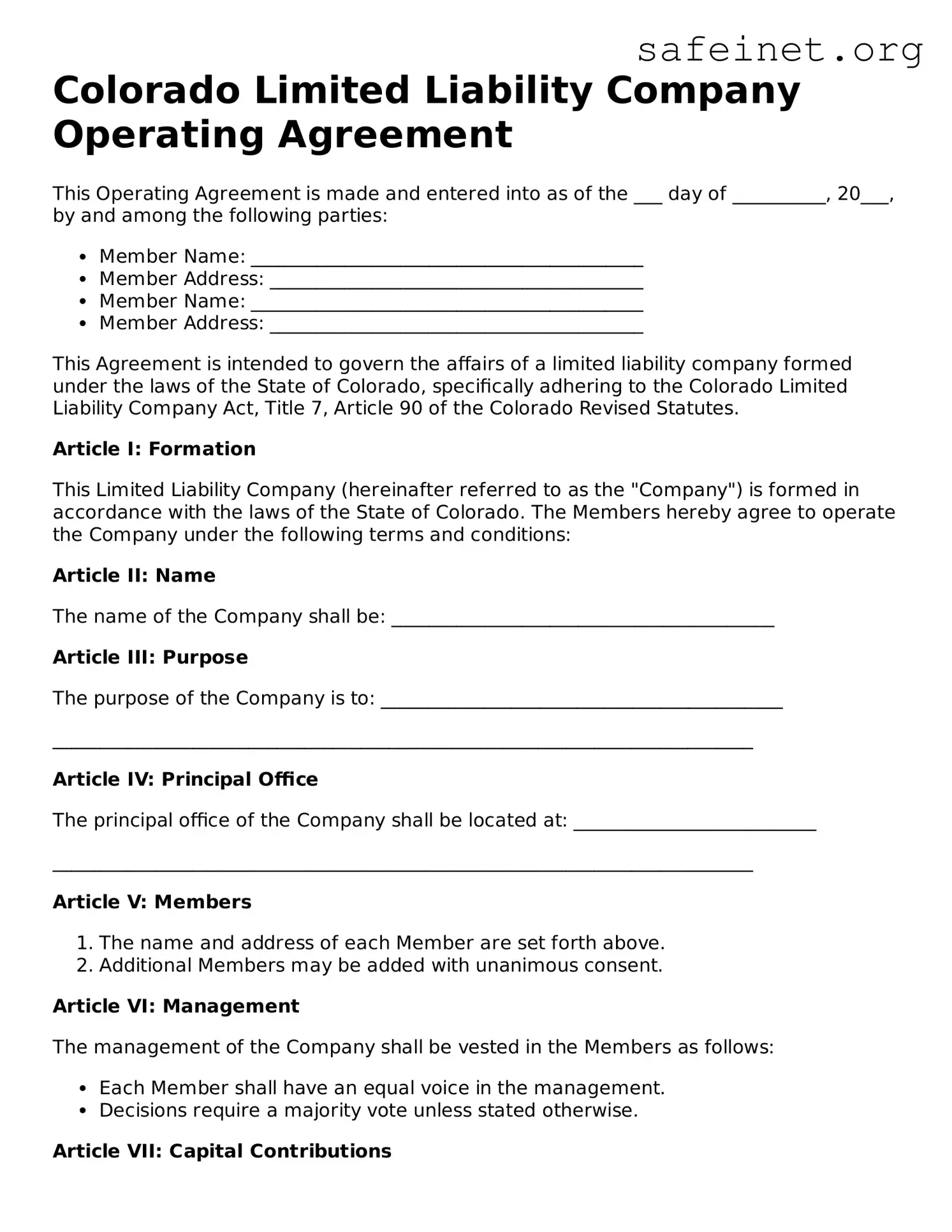What is a Colorado Operating Agreement?
A Colorado Operating Agreement is a legal document that outlines the ownership and organizational structure of a limited liability company (LLC) operating in Colorado. It details the management responsibilities, voting powers, and the rights and obligations of its members, ensuring everyone understands their roles and the rules governing the LLC’s operation.
Is an Operating Agreement required in Colorado?
While Colorado does not legally require LLCs to have an Operating Agreement, it is highly recommended. Having one can help prevent misunderstandings among members and provide a clear framework for managing the company. Additionally, courts may favor firms with an agreement in place when disputes arise.
Who should create the Operating Agreement?
The members of the LLC typically create the Operating Agreement collectively. It's beneficial to involve all members, as this promotes transparency and collaboration from the outset. In some cases, legal assistance can ensure all aspects are covered comprehensively.
What should be included in the Operating Agreement?
A well-drafted Operating Agreement should include several key elements: the company name, business purpose, member contributions, profit and loss distribution, management structure, voting rights, procedures for adding or removing members, and guidelines for dissolution. Each of these sections contributes vital information necessary for effective operation.
Can we change the Operating Agreement later?
Yes, the members can amend the Operating Agreement as needed. Typically, this requires a vote among the members, depending on the procedures laid out in the original Agreement. Keeping it updated ensures that it remains relevant to the company’s needs and circumstances.
What happens if we don’t have an Operating Agreement?
Without an Operating Agreement, the LLC will default to Colorado’s state laws regarding LLC management and operations. This may lead to conflicts among members, especially regarding profit distribution and decision-making. In the absence of a mutually agreed-upon framework, tensions could escalate and potentially jeopardize the business’s success.
How does the Operating Agreement impact liability protection?
The Operating Agreement plays a critical role in ensuring limited liability protection for the members. By clearly outlining the business's operations and member roles, it helps reinforce the separation between personal assets and business liabilities. This clarity can be crucial if legal issues arise, protecting members from personal liability.
Can a single-member LLC have an Operating Agreement?
Absolutely! A single-member LLC can and should have an Operating Agreement. It helps document how the business will run and can provide clarity regarding the owner’s operations and intentions. This is especially important for establishing credibility and can help maintain the LLC’s liability shield.
Where can I find a template for a Colorado Operating Agreement?
Many online resources and legal platforms offer templates for a Colorado Operating Agreement. Some libraries or local bar associations may also have sample agreements. However, while templates can provide a good starting point, it's wise to review the document carefully and consider legal help to tailor it to specific business needs.
